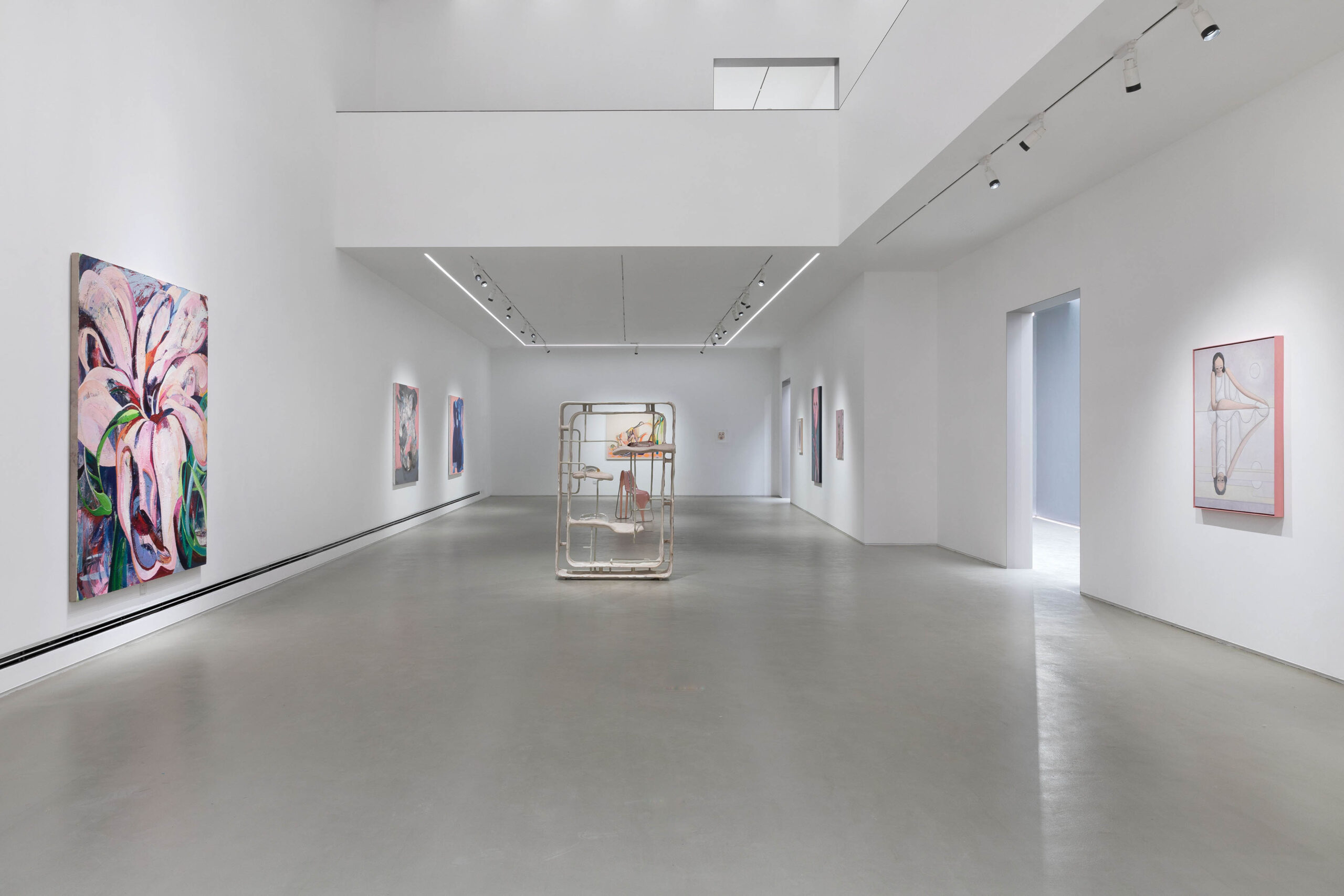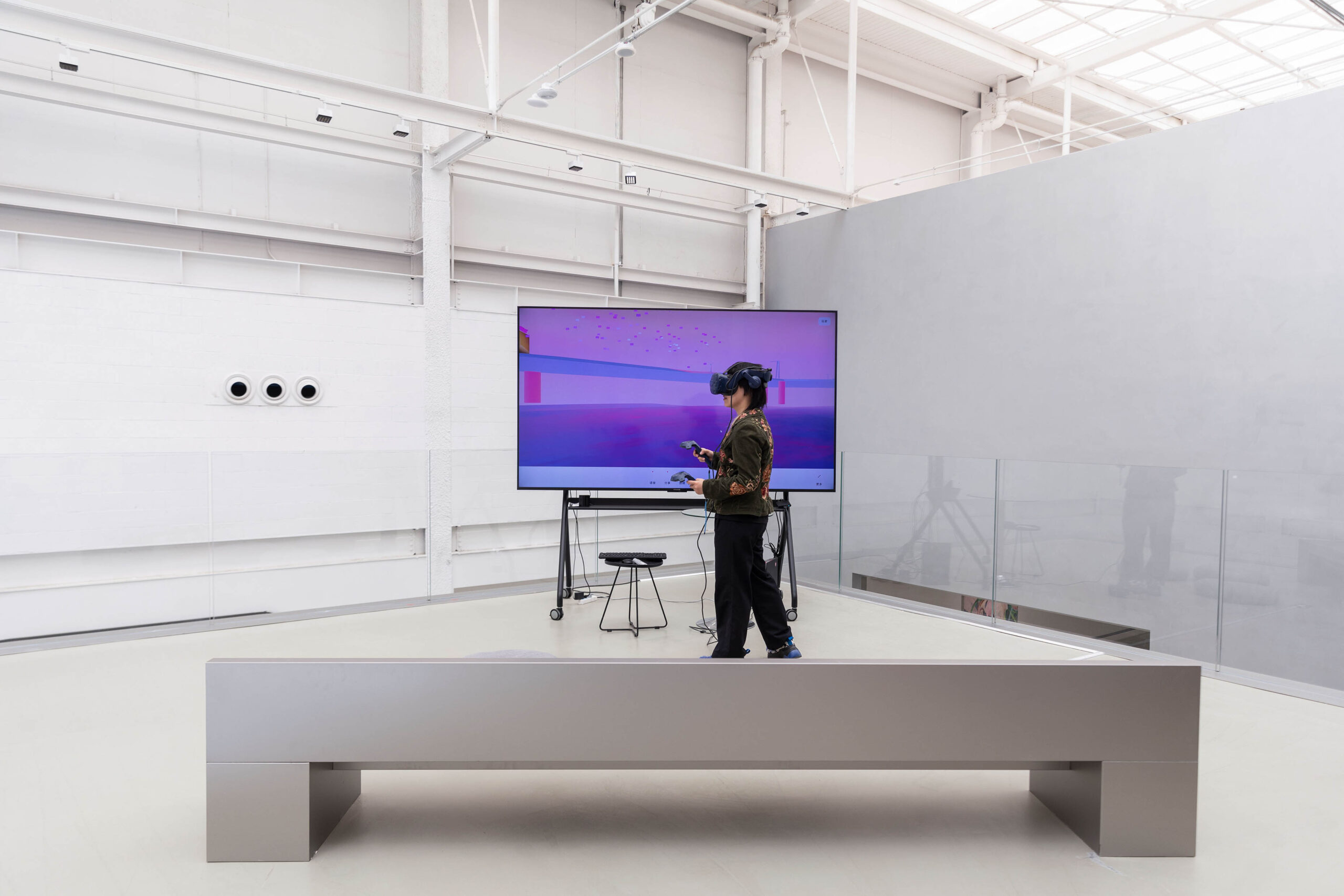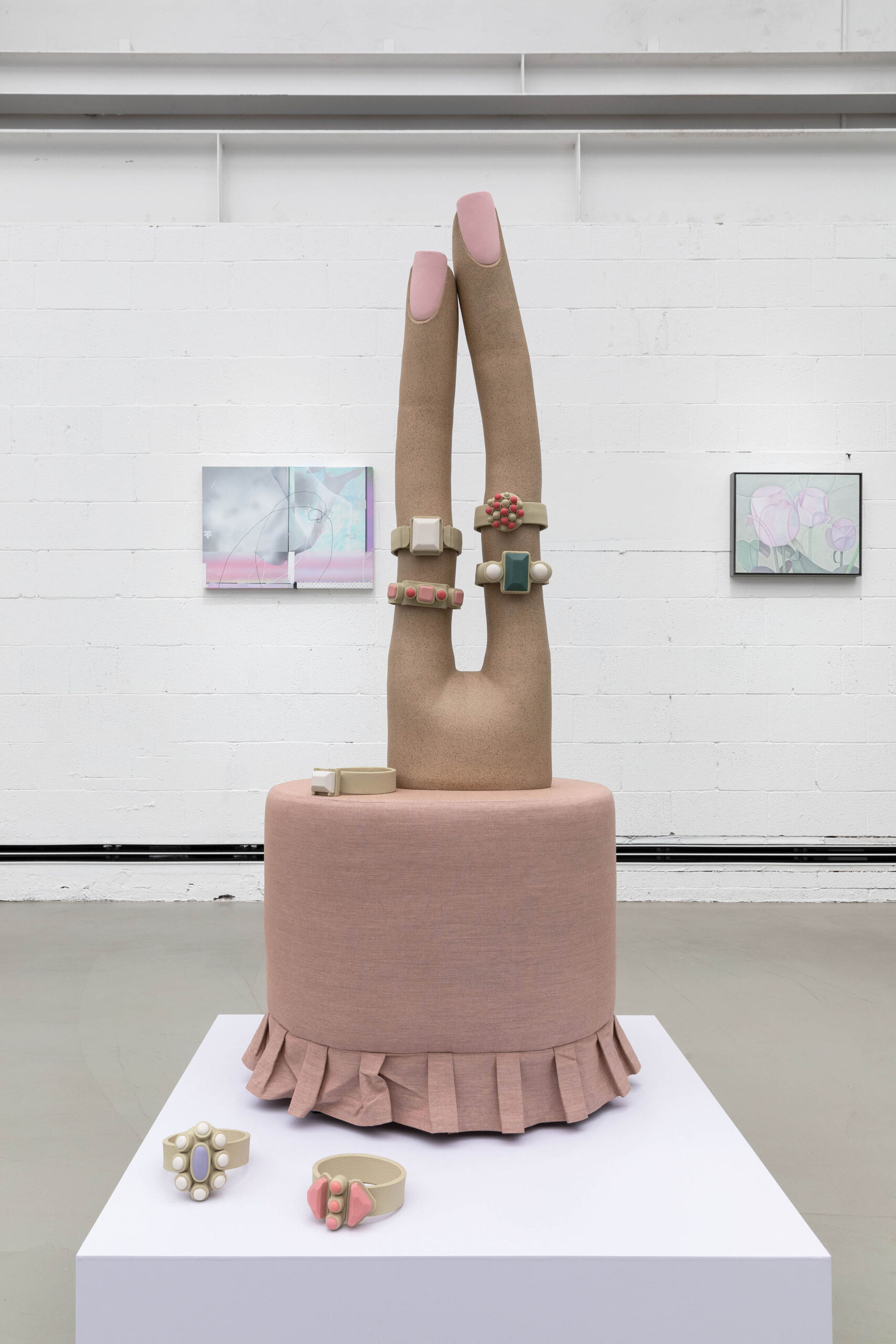
X Museum is pleased to present its inaugural exhibition ‘X PINK 101’ in its new location in Beijing, from May 28 to August 6, 2023. Centred around the colour pink, the exhibition brings together 49 works from the museum collection in its newly restored historic building, marking a fresh chapter of the museum’s inspiring programs.
 The exhibition starts with an investigation of the body in art. As one of the most profoundly contested subjects in the history of art, the body has long been endowed with aesthetic significance and continues to serve as a medium for artists to express personal experience and self-consciousness. From Christina Quarles and Zhang Zipiao’s discursive approach to corporeality, to Jes Fan and Heidi Bucher’s practice of eco-feminism through materials and Antonio Obá and Zéh Palito’s retracing of the heritage of memory, the works in the first part of the exhibition examine the notions of the body and identity that are in constant flux under social and cultural constructs, as well as the ways in which race and gender intertwine to form complex identities. Works in this section portray and imagine the human body, highlighting a contentious visual reference for discussions in relation to identity.
The exhibition starts with an investigation of the body in art. As one of the most profoundly contested subjects in the history of art, the body has long been endowed with aesthetic significance and continues to serve as a medium for artists to express personal experience and self-consciousness. From Christina Quarles and Zhang Zipiao’s discursive approach to corporeality, to Jes Fan and Heidi Bucher’s practice of eco-feminism through materials and Antonio Obá and Zéh Palito’s retracing of the heritage of memory, the works in the first part of the exhibition examine the notions of the body and identity that are in constant flux under social and cultural constructs, as well as the ways in which race and gender intertwine to form complex identities. Works in this section portray and imagine the human body, highlighting a contentious visual reference for discussions in relation to identity.
 Bodies are the primary media that communicate our minds and external worlds. Loaded with desire and fantasy, bodies are instruments of ideas and ideals that take us to the infinite visualisation of dreams. With the emergence of fantasy paintings in pre-WW2 eras, tales and oneiric pictorial spaces have become peculiar ways of expression for artists to engage with. Similar to the prevailing Surrealism movement of the same era, artworks of fantasy, myth, and fiction resist rational thinking – without laying their ground entirely on reality – these works are halfway to the sky, between dreams and mirrors, between beliefs and enigmas. The exhibition also showcases a selection of five artworks on fantasy and dreams. From custom pigments, dyed fabrics, and embroidery to silicon tubes, berry juice, and gardenia seeds, the artists conjure exquisite works from handcrafts, organisms, and biomaterials, leaving substantial space for imagination.
Bodies are the primary media that communicate our minds and external worlds. Loaded with desire and fantasy, bodies are instruments of ideas and ideals that take us to the infinite visualisation of dreams. With the emergence of fantasy paintings in pre-WW2 eras, tales and oneiric pictorial spaces have become peculiar ways of expression for artists to engage with. Similar to the prevailing Surrealism movement of the same era, artworks of fantasy, myth, and fiction resist rational thinking – without laying their ground entirely on reality – these works are halfway to the sky, between dreams and mirrors, between beliefs and enigmas. The exhibition also showcases a selection of five artworks on fantasy and dreams. From custom pigments, dyed fabrics, and embroidery to silicon tubes, berry juice, and gardenia seeds, the artists conjure exquisite works from handcrafts, organisms, and biomaterials, leaving substantial space for imagination.
 The evolution of technology crystallises human society into various phases, interweaving the sonnets of time and space. The exhibition also includes works that capture fantasies about technology: the entanglement of fragile humanoid and parasitic plants, human forms generated by the Bézier curve, curved slides connected to the world of wonders, and bizarre social networking scenarios on the mysterious Mars. The universe folds in on itself – these utopian visions contextualise the idea of ‘de-distancing’ in Heidegger’s mode of being, inviting the audience to envisage the end of the world where all human beings are absent, and imagine various emotions between the heterogeneous forms of life that remain.
The evolution of technology crystallises human society into various phases, interweaving the sonnets of time and space. The exhibition also includes works that capture fantasies about technology: the entanglement of fragile humanoid and parasitic plants, human forms generated by the Bézier curve, curved slides connected to the world of wonders, and bizarre social networking scenarios on the mysterious Mars. The universe folds in on itself – these utopian visions contextualise the idea of ‘de-distancing’ in Heidegger’s mode of being, inviting the audience to envisage the end of the world where all human beings are absent, and imagine various emotions between the heterogeneous forms of life that remain.
Artists
| Trey Abdella | Diane Severin Nguyen |
| Genesis Belanger | Thenjiwe Niki Nkosi |
| Heidi Bucher | Antonio Obá |
| Cai Zebin | Zéh Palito |
| Thomas Cameron | Wendy Park |
| Anders Davidsen | Nicolas Party |
| Mimosa Echard | Paulo Nimer Pjota |
| Jes Fan | Farah Al Qasimi |
| Fei Yining | Christina Quarles |
| Mehdi Ghadyanloo | George Rouy |
| Brice Guilbert | Shi Zhiying |
| Cathrin Hoffmann | Sin Wai Kin |
| Loie Hollowell | Marlene Steyn |
| Igor Hosnedl | Fabian Treiber |
| Marguerite Humeau | Vickie Vainionpää |
| Raymie Iadevaia | Brent Wadden |
| Ji Xin | Wang Xiaoqu |
| Botond Keresztesi | Ambera Wellmann |
| Hannah Levy | Stephen Wong Chun Hei |
| Li Shurui | Issy Wood |
| Dana Lok | Xu Zhen |
| Tahnee Lonsdale | Guimi You |
| Luo Ran | Zhang Zipiao |
| Lila de Magalhaes | Zheng Mengqiang |
| Kylie Manning |
About The Artists
About The Curators






































